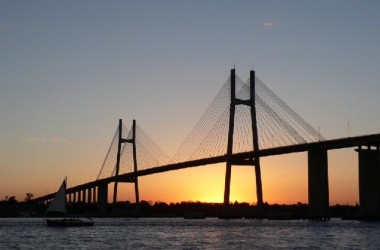EU Court Approves Cut-Rate Business Taxes for Gibraltar

On Thursday a European Union court in Luxembourg ruled in favor of Gibraltar's state aid case, thereby allowing Gibraltar to levy a corporate tax rate of just 15% of profits on offshore companies. The ruling enables Gibraltar to remain an attractive destination for international businesses, including those of the online gaming industry, many of whom have chosen the British territory as a base for their operations.
The ruling comes in response to a challenge by the European Commission, which had based its objection on the fact of Gibraltar's fiscal autonomy from the United Kingdom. That challenge dates back to 2002 when Gibraltar's Chief Minister, Peter Caruana, proposed a new corporate tax system for the territory. The European Commission, believing the new system gave Gibraltar-located companies unfair advantages over their U.K. counterparts, charged that for taxation purposes the territory should be considered part of the U.K. and therefore be subject to its corporate tax rates. Caruana countered by pointing back to Gibraltar's 1969 constitution which explicitly gives the territory fiscal autonomy.
The European Commission's challenge had culminated in a 2004 decision by the EC against Gibraltar. Yesterday's judgment annuls that decision, however, with the EU court specifically dismissing the EC's conclusions regarding the relationship between Gibraltar and the U.K. In its ruling, the EU court drew on a 2006 judgment on the tax regime of the Azores (an archipelago belonging to Portugal) to support its decision that from a constitutional standpoint, Gibraltar's political and administrative status is indeed separate from that of the U.K. government.
Among the many online gaming companies based in Gibraltar, the most prominent for poker players are PartyGaming Plc (Party Poker), 888 Holdings (888.com and Pacific Poker), and Mansion (Mansion Poker). Many of these Gibraltar-based online gaming companies are listed on the London Stock Market. It is estimated that the online gaming industry employs more than 12% of the overall workforce in the territory.








